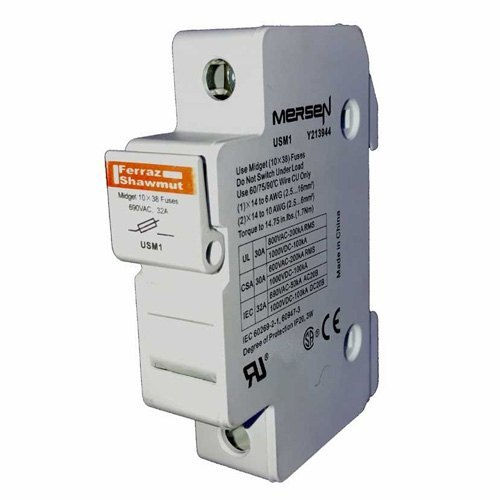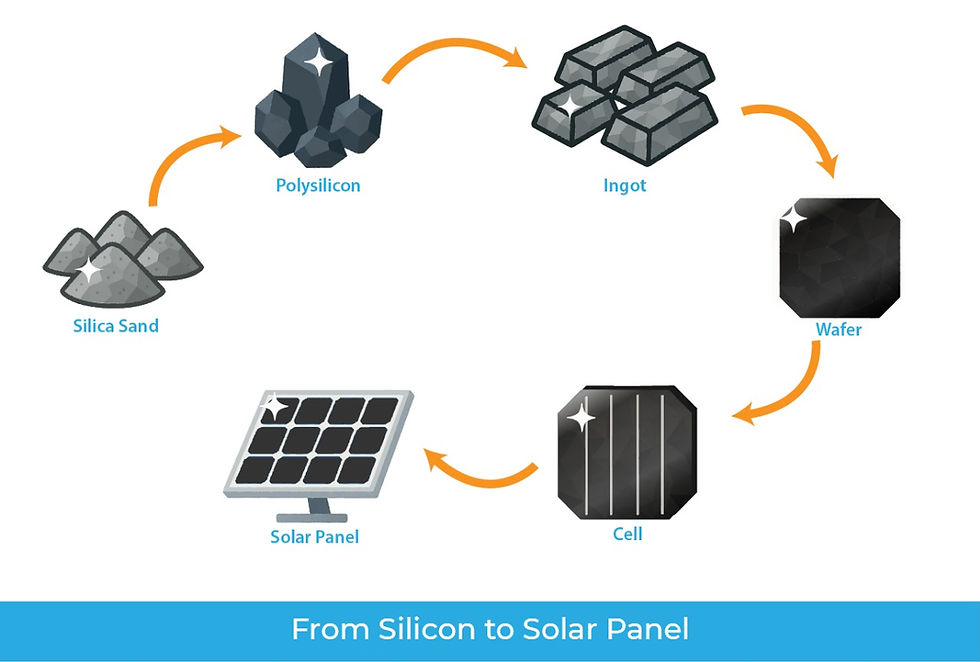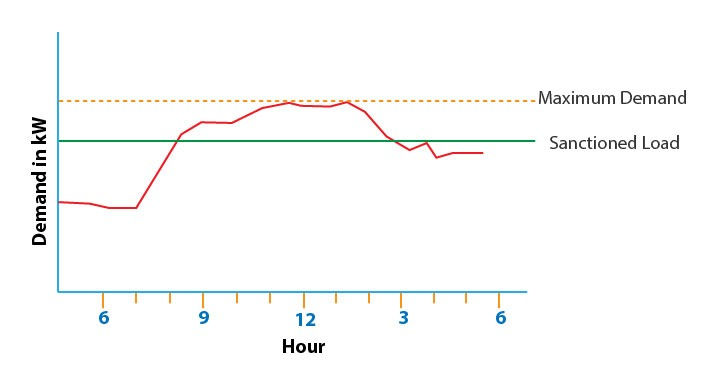The Tiny Lifeguard: How a Fuse Works in Your Solar Plant's DCDB
- Hyde Source

- Aug 4, 2025
- 3 min read
While solar panels and inverters form the heart of a solar power system, its safety and reliability hinge on small but critical components. Among them, the fuse, housed within the DCDB (Direct Current Distribution Box), acts as a tiny but essential lifeguard, protecting your entire system from catastrophic electrical faults.
What is a Fuse?

A fuse is a simple yet effective safety device designed to protect an electrical circuit from overcurrent. Inside, it contains a metal wire or strip that is engineered to melt and break when the current flowing through it exceeds a certain rating. This act of melting, or "blowing," instantly interrupts the flow of electricity, preventing damage and fire.
How a Fuse Works
1. Under Normal Conditions
During normal operation, the current flowing through the circuit is within the safe limits for which the fuse is rated. The fuse element, although thin, is able to handle this current without overheating. It remains intact, acting as a low-resistance path that allows electricity to flow through it to power the connected device.
2. During a Short Circuit or Overload
When a short circuit or a severe overload occurs, the current in the circuit increases dramatically. This massive surge in current causes the thin fuse element to heat up very quickly. Because the fuse element is made of a low-melting-point metal, it rapidly reaches its melting point and vaporizes.
This action breaks the fuse element, which in turn creates a gap in the electrical path. The circuit is now open, and the flow of electricity is instantly stopped. The device and the wiring are protected from the dangerously high current.
The Role of a Fuse in the Solar DCDB
The DCDB is strategically located between your solar panels and the inverter. The fuses within this box are responsible for protecting the DC side of your system, which includes the solar panels, their wiring, and the inverter's DC input.

Here’s a breakdown of its key functions:
Overcurrent Protection: Solar panels produce a specific amount of current. If a fault—such as a short circuit within a panel or damaged wiring—causes the current to rise dangerously, the fuse on that particular string of panels will instantly blow. This isolates the faulty string, preventing the overcurrent from damaging the inverter or starting a fire.
Protection Against Fault Current from Other Strings: In a system with multiple strings of panels connected in parallel, a fault in one string can cause the other healthy strings to "back-feed" current into the faulty one. This can create a massive fault current that can melt cables or even damage the solar panels. Fuses in the DCDB prevent this by immediately breaking the circuit, isolating the faulty string and allowing the others to continue operating safely.
Preventing Fires: Without a fuse, an overcurrent would cause wiring to overheat, potentially melting the insulation and leading to a serious fire. By sacrificing itself, the fuse prevents this from happening.
Why a Special "gPV" Fuse is Necessary
For solar applications, you cannot use a standard electrical fuse. Solar PV systems operate with unique characteristics, including high DC voltages and the potential for persistent electrical arcs that are difficult to extinguish.
gPV Fuses (Photovoltaic Fuses) are specially designed for this environment. They have a high breaking capacity and are built to interrupt high DC currents quickly and safely, preventing the formation of dangerous arcs that could otherwise cause a fire.
In summary, the fuse in your solar DCDB is a non-negotiable safety component. It acts as an affordable, sacrificial layer of protection that safeguards your expensive solar panels, wiring, and inverter from electrical faults, ensuring the long-term safety and reliability of your solar power system.
Ready to go solar? We're here to help! Reach out to our experts today for a personalized discussion about your specific requirements. We'll craft the ideal solar system that perfectly fits your needs and budget.




